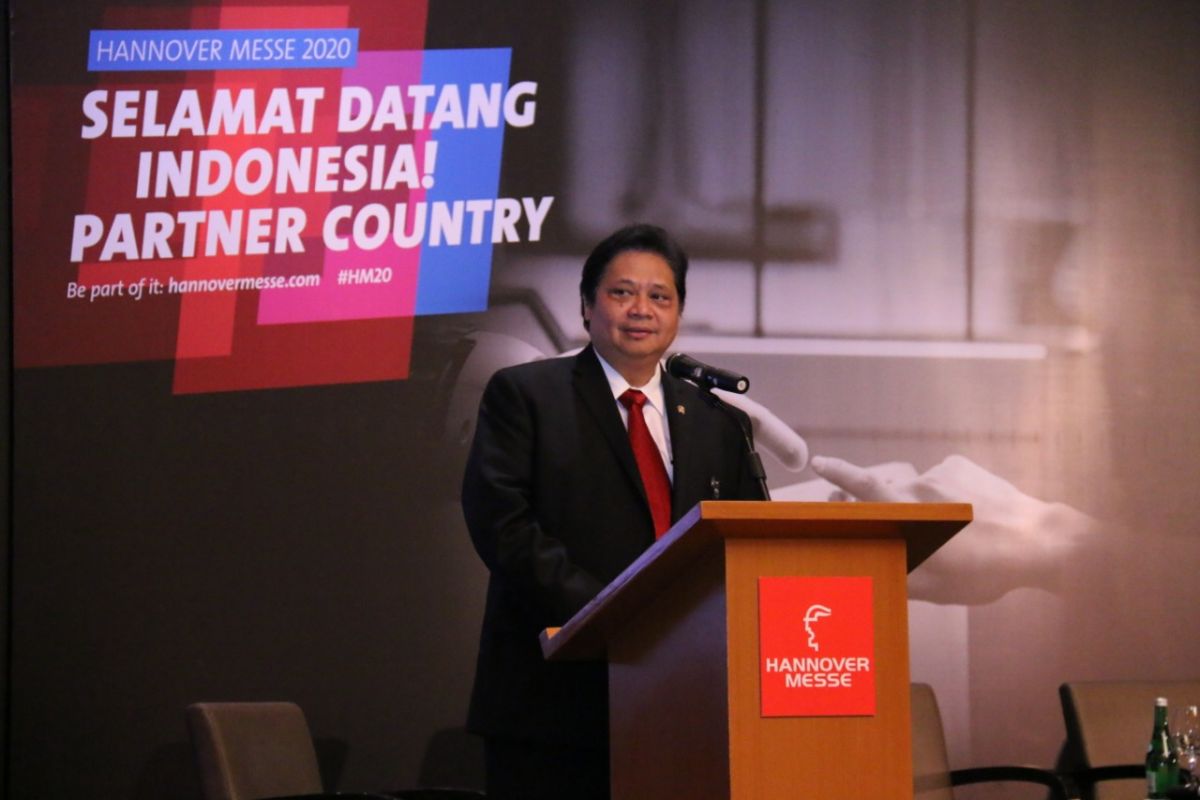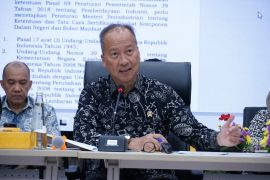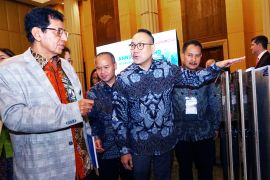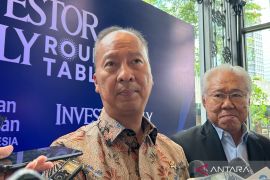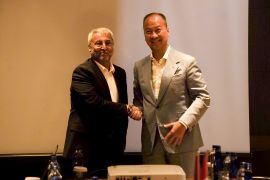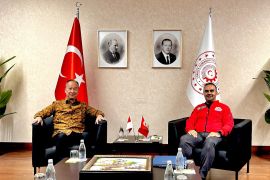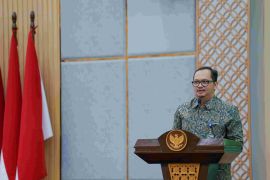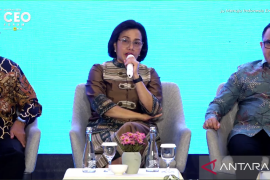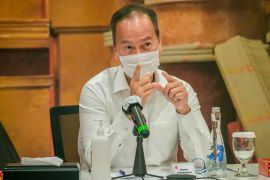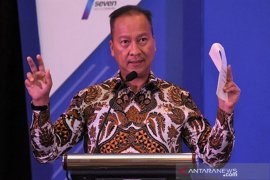"Indonesia will be on the main stage of the world's largest exhibition for industrial technology. The activity will take place on April 20-24, 2020, in Hannover Messe, Germany," Industry Minister Airlangga Hartarto noted in a statement, Friday.
Hannover Messe 2020 is also one of Indonesia's efforts to introduce the "Making Indonesia 4.0" road map launched by President Joko Widodo (Jokowi) last year.
Related news: Indonesia to showcase manufacturing capability at Hannover Messe
The road map puts forth 10 national strategies to breathe new life into the manufacturing sector and the five priority industries of food and beverage, textile and apparel, automotive, electronics, and chemical that are perceived as having the capacity and a noteworthy impact in the adoption of the fourth industrial revolution.
Furthermore, Indonesia’s participation in the Hannover Messe is expected to boost investment in the manufacturing industry and the development of digital infrastructure.
Deutsche Messe's Managing Board Chairman, Dr Jochen Köckler, affirmed that Indonesia, as a partner country at Hannover Messe, has not only intensified its economic relations with Germany but also portrayed itself during this crucial global event.
German Ambassador to Indonesia Peter Schoof revealed that Indonesia had been selected as the official partner of next year's Hannover Messe.
Firstly, relations between Indonesia and Germany over the past few decades, particularly in the area of economic cooperation, had remained sound and strong.
"Several German companies have been around since a long time in Indonesia. We continue to support this country to grow and develop, and we have also benefited greatly from the inspiration that exists in Indonesia," he stated.
The second rationale is Indonesia's huge potential that is apparent from the McKinsey research that shows the Indonesian economy currently ranked 16th in the world. In fact, it is projected to stand seventh in 2050.
Related news: BI, Industry Ministry sign agreement on manufacturing industry
"Indonesia has enormous natural resources and human capital and is supported by complete infrastructure. This is an opportunity for Indonesia," Schoof stated.
The third basis is that the Indonesian government has acted in the right direction in selecting the priority development program in future that pertains to human capital development.
"Human capital development is one of the most important conditions for Indonesia to be involved in the global supply chain that will certainly be able to increase added value and innovation," Schoof stated.
Ultimately, Indonesia is a democratic nation, and Germany supports countries keen on establishing multilateral cooperation.
"This year, we see democracy being implemented by Indonesia. Indonesia is not only competing at the ASEAN level but also in the global arena," he stated.
The trade volume between Germany and Indonesia had surpassed US$6 billion in 2017.
German exports to Indonesia chiefly comprised machinery, chemical products, measuring and control technology, electrical engineering, electronics, vehicles, and vehicular parts. In the meantime, Indonesia exports textile products, footwear, electronics, food, and raw materials to Germany.
Currently, over 250 German companies, including Festo, Robert Bosch, SAP, TÜV NORD, Siemens, MAN, ThyssenKrupp, BASF, Bayer, Daimler, and BMW, run businesses in Indonesia.
Related news: Minister upbeat about Indonesia emerging as ASEAN manufacturing hub
EDITED BY INE
Translator: Sella Panduarsa Gareta/Yashint
Editor: Rahmad Nasution
Copyright © ANTARA 2019
